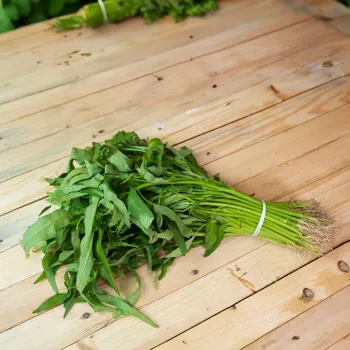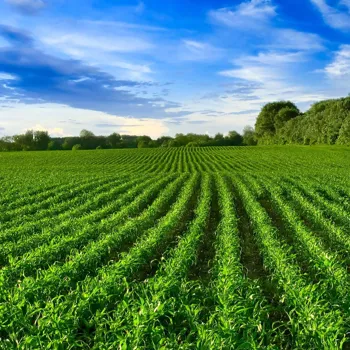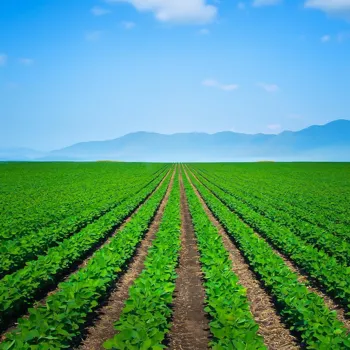Discover the importance of sustainable farming practices supporting local farmers. Dive into 6 impactful methods reshaping agriculture!
Across India, from the fertile plains of Punjab to the rolling hills
of Kerala, our local farmers are the backbone of our food supply. They work tirelessly to bring fresh, nutritious food to our tables.

But often, they face numerous challenges, from unpredictable weather patterns to fluctuating market prices. Supporting them isn't just about getting good quality produce; it's about ensuring the sustainability of our communities and environment.
Let's explore six simple yet impactful sustainable practices that can empower our local farmers and create a more resilient food system.
Embracing Crop Rotation and Diversification:
For generations, many farmers have relied on monoculture – planting the same crop year after year. This can deplete the soil of essential nutrients, making it vulnerable to pests and diseases.

Crop rotation, on the other hand, involves strategically planting different crops in the same field over time. This can revitalize the soil, improve its structure, and reduce the need for chemical fertilizers and pesticides.
Diversification takes this a step further by encouraging farmers to grow a variety of crops and even integrate livestock into their farming practices. This not only enhances biodiversity but also provides farmers with multiple income streams, making them less vulnerable to market fluctuations.
Imagine a farmer who grows rice one season, followed by legumes like lentils or beans, and then a leafy vegetable like spinach. This rotation naturally replenishes nitrogen in the soil (thanks to the legumes), breaks pest cycles, and provides a diverse range of nutritious produce.
By supporting farmers who practice crop rotation and diversification, we contribute to healthier soil, a more resilient ecosystem, and a more stable livelihood for our agricultural communities. This also allows for better nutritional quality of food products.
Promoting Water Conservation Techniques:
Water scarcity is a growing concern in many parts of India, making efficient water management crucial for sustainable agriculture. Local farmers can adopt several effective water conservation techniques.

Drip irrigation, for instance, delivers water directly to the roots of plants, minimizing water loss through evaporation. Rainwater harvesting involves collecting and storing rainwater for later use, reducing reliance on groundwater.
Another technique is using mulching, which involves covering the soil surface with organic materials like straw or leaves. This helps retain moisture, suppresses weeds, and regulates soil temperature.
By supporting farmers who invest in these water conservation methods, we help them become more resilient to drought and ensure the sustainable use of our precious water resources.
Furthermore, we contribute to a greener and more environmentally friendly agricultural sector that doesn't put undue pressure on our water resources. Educating farmers on water-wise farming is an important element.
Encouraging Composting and Organic Fertilizers:
Chemical fertilizers, while providing a quick boost to crop yields, can have detrimental effects on the environment, polluting our soil and water. A sustainable alternative is to promote composting and the use of organic fertilizers.
Composting involves breaking down organic waste materials like kitchen scraps, crop residues, and animal manure into a nutrient-rich soil amendment.
Organic fertilizers, such as compost, vermicompost (worm castings), and cow manure, release nutrients slowly and steadily, improving soil health and promoting long-term fertility.
By supporting farmers who embrace organic farming practices, we reduce our reliance on harmful chemicals and contribute to healthier, more fertile soil. This leads to more nutritious and flavorful produce.
We also promote an environment that is better for all living organisms, from beneficial insects to the microorganisms that are essential for soil health. This will preserve the richness of the soil.
Supporting Integrated Pest Management (IPM):
Pesticides, while effective in controlling pests, can harm beneficial insects, contaminate our food, and pollute the environment. Integrated Pest Management (IPM) offers a more sustainable approach to pest control.
IPM involves using a combination of methods, including biological control (introducing natural predators of pests), cultural practices (like crop rotation and proper sanitation), and targeted use of pesticides only when necessary.
By supporting farmers who adopt IPM strategies, we reduce our exposure to harmful chemicals and promote a healthier ecosystem. Further, we are helping to protect the biodiversity of agricultural landscapes. IPM creates a system where the natural balance is preserved.
This will lead to a more sustainable farm ecology. Education is a key element.
Promoting Direct Farmer-Consumer Connections:
One of the most effective ways to support local farmers is to buy directly from them. This eliminates the middlemen, ensuring that farmers receive a fair price for their produce.
There are many ways to connect with local farmers, such as farmers' markets, community-supported agriculture (CSA) programs, and farm-to-table restaurants. By choosing to buy directly from local farms, we get access to fresher, healthier produce.
We also get to know the people who grow our food, fostering a sense of community and connection to the land. Direct farmer-consumer connection gives the opportunity for the consumer to learn all about the crop and know its origin and what ways the crop grew.
Investing in Education and Training Programs:
To effectively implement sustainable practices, farmers need access to knowledge and resources. Investing in education and training programs on sustainable agriculture is crucial.
These programs can empower farmers with the skills and knowledge they need to adopt innovative farming techniques, improve their yields, and protect the environment. Support government initiatives, NGOs, and community organizations that provide training and resources to local farmers.
By investing in education, we empower farmers to become stewards of the land and build a more sustainable future for agriculture. Access to education is a very crucial step in this.
AI Generated Content. Glance/InMobi shall have no liability for the content













